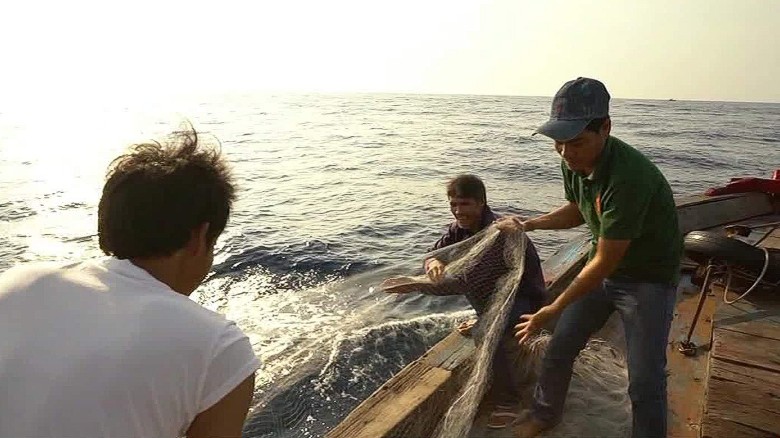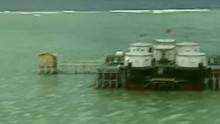South China Sea: Beijing vows to prosecute 'trespassers'
China has sent a clear warning to foreigners who enter contested areas of the South China Sea -- stay away or you'll be prosecuted.
The warning came in a detailed explanation of last month's Hague ruling, which found that China's territorial claims in region have "no legal basis" under the U.N. Convention on the Law of the Sea.
China claims almost all of the South China Sea, including islands more than 800 miles (1,200 kilometers) from the Chinese mainland, despite objections from neighbors including the Philippines, Malaysia, Brunei and Vietnam.
On Tuesday, the Chinese Supreme People's Court issued a regulation on judicial interpretation saying there was a "clear legal basis for China to safeguard maritime order, marine safety and interests, and to exercise integrated management over the country's jurisdictional seas."
Michael C. Davis, a law professor at Hong Kong University, told CNN the supreme court's statement was "worrisome."
"This is kind of an ominous suggestion that they will be prosecuting people who enter the waters that China claims," he said.
Judicial power
The Hague ruling found that China had no historic title to the waters and had breached the sovereign rights of the Philippines, which brought the case.
The court also ruled that many purported islands controlled by China are not in fact, islands, but instead reefs or rocks, which do not generate territorial rights.
China's top court did not directly reference the Hague ruling, but said that "judicial power is an important component of national sovereignty."
China fiercely guards what it regards as its territorial waters, attacking and arresting foreign fishermen who work near islands controlled by Beijing.
The supreme court said Chinese citizens or foreigners who engage in illegal hunting or fishing in the waters will be criminally prosecuted. It classified several situations as "illegally entering Chinese waters," including remaining or reentering waters "after being warned and driven away," that could result up to a year in prison.
In May, Vietnamese fishermen told CNN how Chinese-flagged vessels raided their boats and stole equipment in the waters near the Paracel Islands.

Fishermen caught up in South China Sea tensions
Davis warned that the direction could mean Filipino fishermen operating in waters the UN tribunal ruled belong to the Philippines could be apprehended by Chinese vessels and be "prosecuted in direct contradiction of the (Hague) ruling."
The supreme court also said that Chinese fishermen who violate environmental protection laws in the South China Sea could be prosecuted.
Davis said that this could be "a signal they will require their fishermen to adhere to environmental standards, which they haven't in the past."
The Hague tribunal found that Chinese fishermen and reclamation projects had caused "irreparable harm" to the region's marine environment.
Policing disputed waters
In recent months, Beijing has reacted angrily to U.S. and Australian freedom of navigation operations in the region, scrambling fighter jets and boats and denouncing the nations' navies as "threatening Chinese sovereignty."
Last week, state-run Chinese newspaper Global Times accused Australia of making itself "a pioneer of hurting China's interest with a fiercer attitude than countries directly involved in the South China Sea dispute."
Canberra was one of the first governments to voice support for the Hague ruling and encourage others to abide by it.
However, while the ruling is considered legally binding, there is no mechanism to enforce it.
News Courtesy: www.cnn.com











